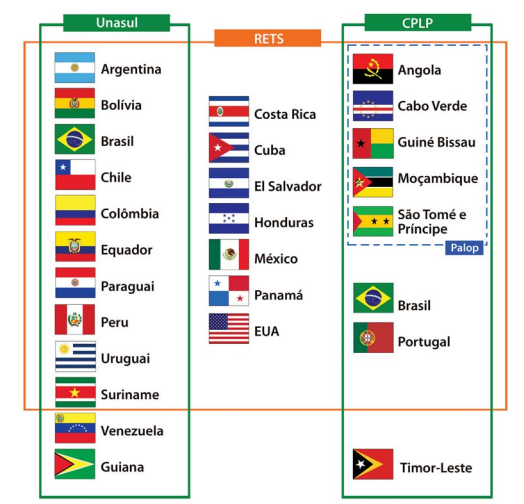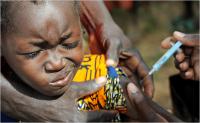International Network of Health Technicians Education celebrates 25 years of existence
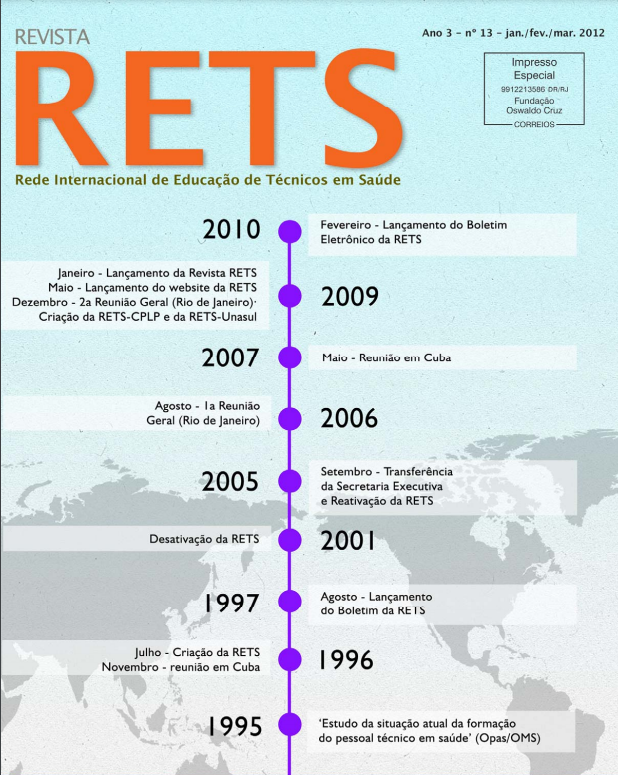 The International Network of Health Technicians Education (RETS), whose Executive Secretariat is exercised by the Joaquim Venâncio Polytechnic School of Health (EPSJV/Fiocruz), completed 25 years of existence on July 1, 2021. Created in 1996, RETS is a link between institutions and organizations involved in the training and qualification of technical personnel in the health area in countries of Americas, Portuguese-speaking Africa, Asia, and Europa. Currently, the network brings together more than 100 institutions from more than 20 countries. It also hosts two subnetworks: the Network of Technical Health Schools of the Community of Portuguese Language Countries (RETS-CPLP) and the Ibero-American Network of Health Technician Education (RIETS).
The International Network of Health Technicians Education (RETS), whose Executive Secretariat is exercised by the Joaquim Venâncio Polytechnic School of Health (EPSJV/Fiocruz), completed 25 years of existence on July 1, 2021. Created in 1996, RETS is a link between institutions and organizations involved in the training and qualification of technical personnel in the health area in countries of Americas, Portuguese-speaking Africa, Asia, and Europa. Currently, the network brings together more than 100 institutions from more than 20 countries. It also hosts two subnetworks: the Network of Technical Health Schools of the Community of Portuguese Language Countries (RETS-CPLP) and the Ibero-American Network of Health Technician Education (RIETS).
The functions of RETS are technical cooperation in the area of training and development of technical workers in the health area, dissemination of knowledge resulting from research, promoting the growth and strengthening of its organizational bodies, encouraging the raising of financial resources for its sustainability, and identification of the educational and training needs of the different existing technical specialties. Its mission is to strengthen national health systems, based on the assumption that the qualification of workers has been considered a fundamental dimension for the implementation of public health policies that meet the needs of populations.
According to Ana Beatriz de Noronha, one of the advisors of EPSJV's International Cooperation team, the role of technicians is fundamental for the operation of national health systems at all levels of complexity. "From community health agents to the technicians responsible for the most sophisticated diagnostic tests. Not to mention, for example, the increasing presence of technicians in the management area and multi-professional teams", she points out.
Ana Beatriz points out that technicians are the majority in health systems and. In her opinion, it is not possible to improve the quality of the system if there are no technicians capable of proposing and provoking the necessary changes. "It is no longer enough for technicians to be just those who do, those who only execute tasks that someone determines. They also have to be the ones who think about what they do and propose new ways of doing it", she says. "Technicians, today, must know and understand, in its entirety, the system in which they work as well as how the National Education and Health policies interfere in their training and their work. With the technological evolution and the new knowledge that constantly arises, health care is no longer the responsibility of just one professional but of a multidisciplinary team. In this context, the presence of technically, socially, and politically well-qualified workers is primordial", she adds.
For EPSJV's International Cooperation coordinator, Carlos Batistella, a brief look at the Network's trajectory is enough to realize that many of the problems listed as the Network's initial concerns remain as critical nodes in the field of training health technicians. "Among them, the imbalances in the availability, composition, and distribution of the health workforce, the almost non-existence of systematized information about the education and work of these professionals, and the search to bring the training processes closer to the reality of the services," he pointed out.
In addition to these issues, Batistella thinks that other ones update the challenges of training health technicians: the precariousness of the work in health, the lack of definition of professional attributions for various categories, low professional recognition and the invisibilization of their work, insufficient investment in teacher training, in the production of teaching materials, and in strengthening educational institutions. "This redoubles the responsibility we have as Technical Secretariat of the Network since the qualification of these workers has been considered a fundamental dimension for the implementation of public health policies that meet the population's needs," he highlighted.
According to him, the path taken has made it possible to expand the bi and multilateral cooperation actions, the sharing of knowledge, and the building of relationships and affections among the Network participants, which is expanded in constant dialogue. "The path to follow is even more challenging: the global health crisis makes social and health inequalities even more explicit and indicates the need to strengthen national health systems. More than ever we need values such as solidarity and cooperation", said Batistella.
The importance of networks
 For Paulo Buss, coordinator of the Center for International Relations in Health (CRIS) at Fiocruz, the networking mechanism makes an extraordinary contribution to solving health problems and establishing productive links between institutions and people. Paulo points out that the inexistence of hierarchy among the partners of a network helps the flow of information and mutual contributions in what we can define as "structuring cooperation in health". "This kind of cooperation has partners rather than donors and recipients, and this is what we think is desirable. The construction of partnerships has marked the networks at Fiocruz," he points out.
For Paulo Buss, coordinator of the Center for International Relations in Health (CRIS) at Fiocruz, the networking mechanism makes an extraordinary contribution to solving health problems and establishing productive links between institutions and people. Paulo points out that the inexistence of hierarchy among the partners of a network helps the flow of information and mutual contributions in what we can define as "structuring cooperation in health". "This kind of cooperation has partners rather than donors and recipients, and this is what we think is desirable. The construction of partnerships has marked the networks at Fiocruz," he points out.
According to him, RETS was the first great experience with networks in Fiocruz. It was an inspiration for the networks that came late, improve the concept of partnerships and not hierarchy. "But of sharing with someone's coordination, without that someone or that partner institution being superior or different, or bigger, or more important than the others," he continues.
In Ana Beatriz's view, networks usually work as privileged spaces for exchanging information and sharing experiences. These exchanges, in turn, tend to develop competencies and increase the negotiation channels between the different actors that form the network. "For the Argentinean health physician Mario Rovere, networks facilitate the creation of bonds among their members. According to her, the simple fact of knowing that the other exists generates acceptance. Knowing what the other does generates interest. The collaboration, even if sporadic among members, tends to generate reciprocity. Cooperation and the sharing of experiences are capable of developing an attitude of solidarity. And, finally, the association in joint initiatives arises from the trust that established among them," she defines.
How did it come about
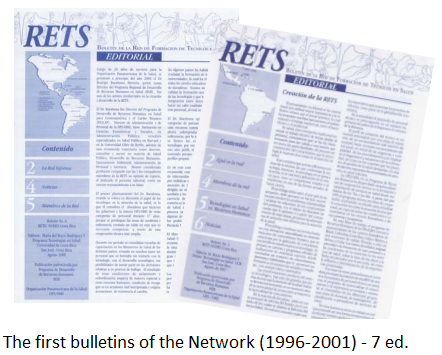
The training of health technicians and assistants had an enormous boost in the 1950s and, from that, educational centers were created with diversified offers of technical careers. In the following decades, the Human Resources Development Program of the Pan American Health Organization (PAHO/WHO) began a line of work focused on the training of health technicians. And, in this context, some meetings were held in Venezuela, Mexico, and Cuba, with the aim of identifying common problems related to the area of training and professional practice of these workers.
At the end of 1995, this Program carried out a study of the situation of the training of technical personnel in health, which brought together 70 centers in 16 countries in the American continent, and identified deficiencies in the human resources planning processes, lack of systematized information on education and work these professionals and outdated study plans.
The result of the research made the construction of an international network for the education of health technicians a priority. Then, in July 1996, during a meeting convened by PAHO/WHO and held in Mexico City, the official creation of the then called Network of Health Technicians (RETS) occurred. At that moment, the Network gathered representatives from Brazil, Colombia, Costa Rica, Cuba, and Mexico, who defined the Costa Rica School of Public Health as the headquarters of the Executive Secretariat of the Network. RETS had as members professors, researchers, and administrators linked to teaching and work in health, social organizations, and educational institutions.
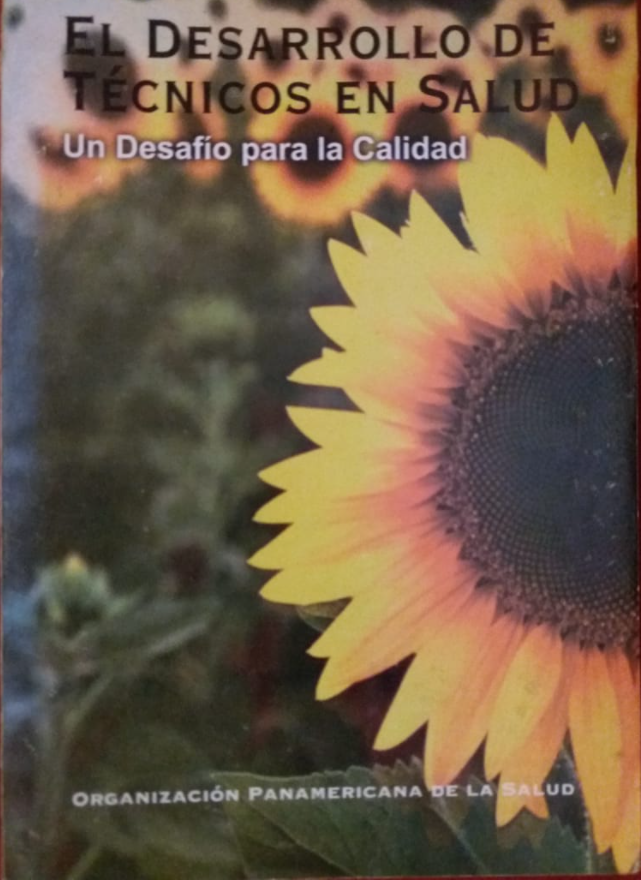
Tânia Celeste Matos Nunes, director of EPSJV from 1993 to 2000, recalls that, at the time, they opted for a minimal structuring for the Network, avoiding the adoption of bureaucratic ties. The idea was encouraging actions that cultivated horizontality, with capillarity and mobilization of members.
Contextualizing the scenario at the time, Tânia says that, in the 1990s, neoliberal governments were spreading throughout Latin America. There was a massive discussion about the reorientation of Health Systems in the scope of what she called sectoral reforms. "The novelty resulting from the Mexico meeting was the organization of the training institutions in a network format. It opened the way for differentiated and structuring horizontal support. The allocation of PAHO resources to finance model courses or not, in the countries, was replaced by a strategy of horizontalization of the initiatives. School leaders became protagonists, and the PAHO's Human Resources Directorate provided support to make the succeeding initiatives viable", she highlights. From this, health systems, according to Tania, have incorporated the importance of health technicians in their human resource structures.
For Alcira Castillo, a professor at the University of Costa Rica and the first Executive Secretary of RETS, the creation of the network in 1996 was an innovative and challenging working strategy among the countries to exchange experiences related to training, capacity building, and development, for so many years barely visible in health services and training centers. "The value of RETS is the escalation at the international level since the mid and late 1990s to foster and support institutional initiatives, through studies, new practices, and regulations, which have provided new up-to-date knowledge about the complex problems and determinants inherent in the training and the world of work of health technicians," he says.
In its first five years of existence, RETS, which brought together only representations from Latin America, reached more than 50 members from 21 countries. "It is worth mentioning that the set of actions carried out in the first years, of technical and political nature, allowed the construction of a new identity for the issue of health technicians, in the environment of PAHO's cooperation at the time," says Tânia.
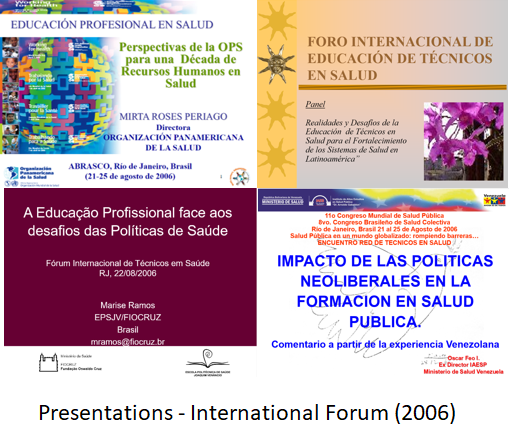 After four years inactive, from 2001 to 2005, RETS was reactivated when EPSJV/Fiocruz was designated the WHO Collaborating Center for the Education of Health Technicians in July 2004. Then the School assumed the Executive Secretariat of the Network at the request of PAHO/WHO. According to the current director of EPSJV, Anamaria Corbo, who was the coordinator of International Cooperation at that time, the restructuring of the RETS was one of the commitments made by the Polytechnic School as a WHO Collaborating Center. She recalls that former network members of RETS were recontacted and new institutions were invited to participate in the initiative, as a strategy to expand its area of coverage of the Network.
After four years inactive, from 2001 to 2005, RETS was reactivated when EPSJV/Fiocruz was designated the WHO Collaborating Center for the Education of Health Technicians in July 2004. Then the School assumed the Executive Secretariat of the Network at the request of PAHO/WHO. According to the current director of EPSJV, Anamaria Corbo, who was the coordinator of International Cooperation at that time, the restructuring of the RETS was one of the commitments made by the Polytechnic School as a WHO Collaborating Center. She recalls that former network members of RETS were recontacted and new institutions were invited to participate in the initiative, as a strategy to expand its area of coverage of the Network.
"In this sense, we organized, in the scope of the 8th Brazilian Congress on Collective Health and 11th World Congress on Public Health, which took place in Rio de Janeiro in 2006, the International Forum on Education of Health Technicians. She points out that the event provided an opportunity for discussion and sharing, at the international level, of knowledge, experiences, and demands related to the training of technical health workers. According to her, meetings held on the first and last day of the event were fundamental for the Network's empowerment. At that moment, the Network received its current name: International Network of Health Technicians Education.
"Based on the assumption that the qualification of workers is a fundamental dimension for the implementation of public policies that meet the health needs of the population in each member country, participation in RETS was allowed to the members of the community of Portuguese-speaking countries (CPLP)," she points out. During the event, members approved the Network's regulations, its communication and work plans for 2006-2008 were approved. A term of reference for the development of health technicians was also defined.
Communication as an ally
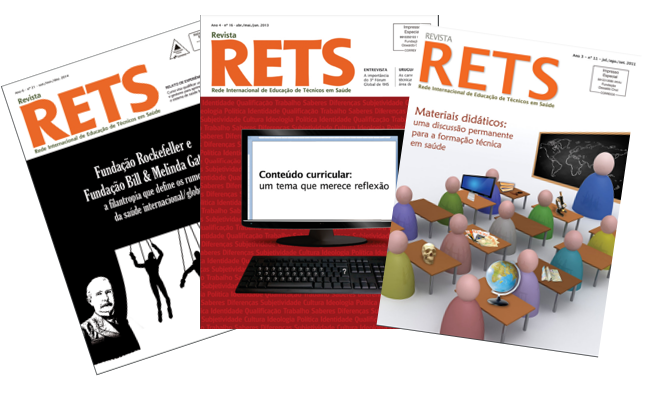
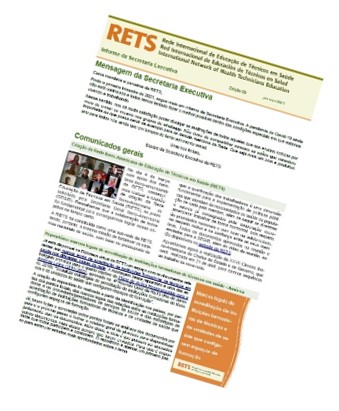 The understanding that communication is a fundamental strategy for networking resulted in the launch of the RETS Magazine in January 2009. The publication was quarterly, and its goal was to stimulate reflection on issues that, to some extent, affect the area of training of health technicians. For operational reasons, RETS Magazine was discontinued in 2015. During its existence, the publication addressed important themes for health and health training, such as migration of health workers, interculturality, distance education, international cooperation in health, social determinants of health, and didactic materials, among many others.
The understanding that communication is a fundamental strategy for networking resulted in the launch of the RETS Magazine in January 2009. The publication was quarterly, and its goal was to stimulate reflection on issues that, to some extent, affect the area of training of health technicians. For operational reasons, RETS Magazine was discontinued in 2015. During its existence, the publication addressed important themes for health and health training, such as migration of health workers, interculturality, distance education, international cooperation in health, social determinants of health, and didactic materials, among many others.
In the same year, RETS created its website, which was renovated in 2013 with more attractiveness and functionality. In 2017, the Network launched its e-newsletter, sent biweekly to over three thousand subscribers in more than 30 countries. Currently, RETS also uses social networks - Facebook, Twitter, and Instagram - to communicate with the general public. Internal communication is carried out through: the Executive Secretariat Report, sent quarterly to Network members and partners; the WhatsApp groups, which keep communication more dynamic among members; and a web conference room in the National Education and Research Network (RNP), as well as other tools for online meetings. All communication within RETS is released in three languages: English, Spanish and Portuguese..
Subnets
In May 2009, at a meeting in Portugal, the Strategic Plan for Health Cooperation of the Community of Portuguese Language Countries (Pecs-CPLP 2009-2012) was approved to strengthening the health systems of the Member States of the Community – Brazil, East Timor, and Portugal plus the five Portuguese-speaking African countries (Palop): Angola, Cape Verde, Guinea Bissau, Mozambique, and São Tomé and Príncipe – to universalize access and improve the quality of care provided to their populations.
Pecs-CPLP established strategic lines of action to the planned priority projects. One of the priorities established in the PECS was the creation of structuring networks as a privileged space for carrying out cooperation actions. In December of that same year, during the 2nd General Meeting of RETS, held in Rio de Janeiro (Brazil), the RETS-CPLP was created.
On the same occasion, the Network of Technical Health Schools of the Union of South American Nations (RETS-UNASUR) was created. This subnet's origin is intrinsically related to the South American Health Council's (CSS) history and the South American Health Agenda, established in December 2008.
On April 19, 2018, Brazil, Argentina, Paraguay, Colombia, Chile, and Peru announced the indefinite suspension of their participation in Unasur. The decision was taken in Lima, Peru, at a meeting on the sidelines of the Summit of the Americas. In the context of the weakening of UNASUR, and the creation of Prosul – Forum for the Progress of South America – by the rising right-wing governments in Latin America, RETS-UNASUR was also deactivated.
In 2021: the creation of RIETS
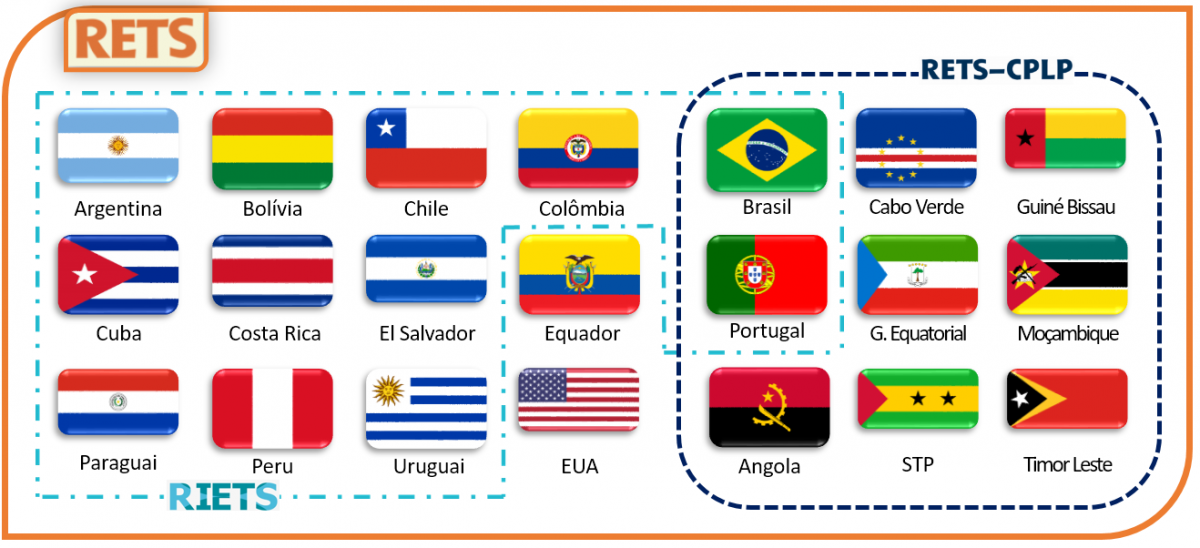
In February 2021, at a meeting held online with representatives of the Ibero-American General Secretariat (Segib), Fiocruz, and several Ibero-American institutions of RETS, was officially created the Ibero-American Network of Health Technicians Education (RIETS). Right after the official ceremony, was held the first Ordinary Meeting of the Network, in which its regulations and a work plan for the biennium 2021-2022 was approved.
At the time of its creation, RIETS already had members from 12 of the 22 countries that make up the Ibero-American community: Andorra, Argentina, Bolivia, Brazil, Colombia, Costa Rica, Cuba, Chile, Ecuador, El Salvador, Spain, Guatemala, Honduras, Mexico, Nicaragua, Panama, Paraguay, Peru, Portugal, Dominican Republic, Uruguay, and Venezuela.
Constituted as a sub-network of RETS, RIETS follows the approaches and values already enshrined in Ibero-American cooperation, working horizontally, respecting national priorities, and based on solidarity, mutual respect, and trust among its members.
A long trajectory...
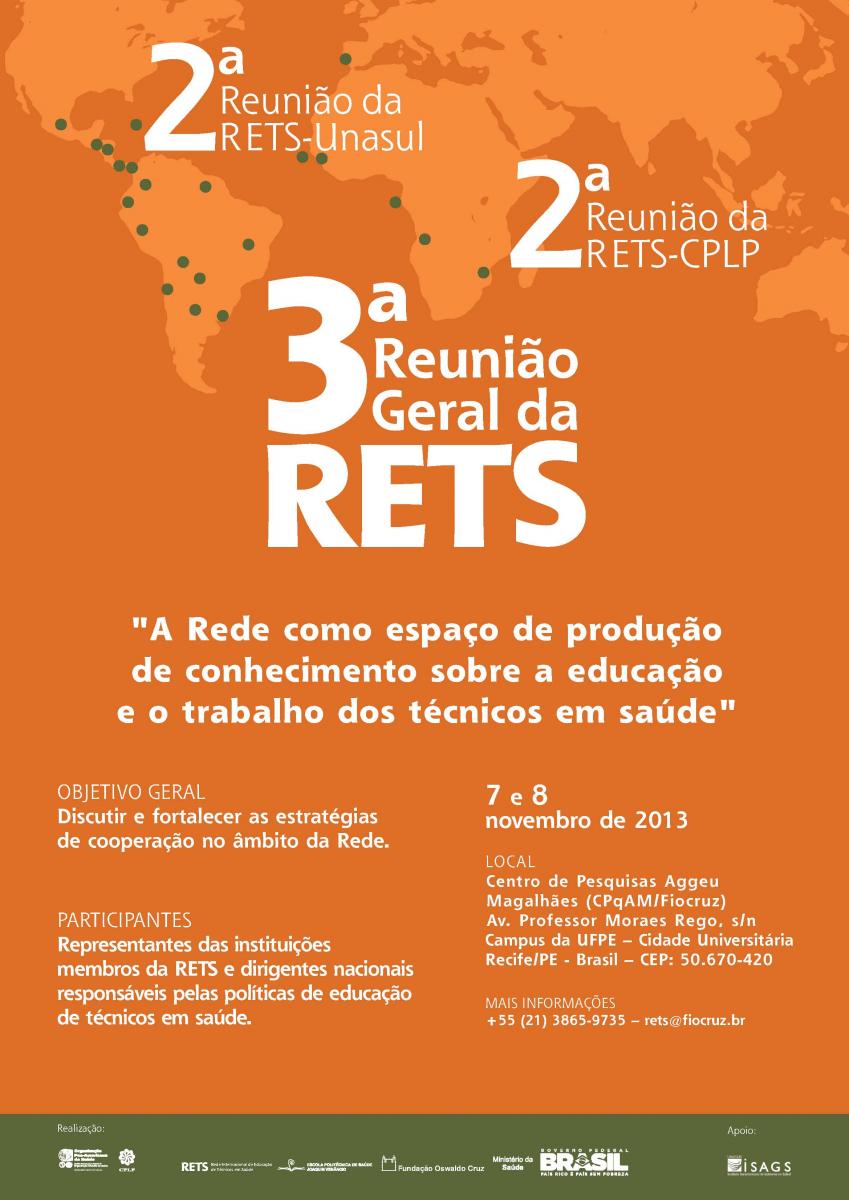
During these 25 years, RETS has organized many events, that in addition to their specific objectives also reinforce the integration among the network's members. In addition to the 1st General Meeting of RETS, held in Rio de Janeiro (Brazil), in August 2006, during the International Forum on Education of Health Technicians, in May of the following year, some members of the Network met in Cuba, during the I Congress on Health Technologies. At that time, an instrument that contributed to achieving a possible unit of categorization of the various careers and areas of technical training was validated to contemplate the educational reality of the countries that make up the RETS..
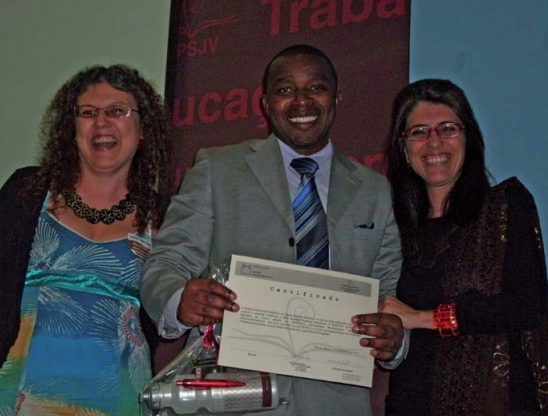
In 2009, the 2nd General Meeting of RETS was held, at which the RETS Work Plan for the 2010-2012 triennium was defined, which remained in force until 2013, and the work plan for the subnetworks RETS-CPLP and RETS-Unasur for the period 2010-2013.
Provided for in the RETS-CPLP 2010-2013 work plan, in 2010 the Specialization Course in Professional Health Education was held for the Palops, the result of a collective work carried out by EPSJV professionals. The general objective of the course was to specialize professors and leaders in the area of Professional Education in Health, by deepening the theoretical-methodological bases that underlie education policies and their relationship with health and health work. The 30 places available were divided between Angola, Cape Verde, Guinea-Bissau, Mozambique, and São Tomé and Príncipe.
In 2013, on the eve of the III World Forum on Human Resources in Health, the 3rd General Meeting of RETS was held in Recife-Brazil. At the meeting, network members approved a new Work Plan (2014-2017). Parallel to the RETS meeting, specific meetings of the subnets of the time were held.
One of the actions foreseen in this Work Plan was the updating and expansion of the Multicentric Research, which had already been carried out by Brazil, Argentina, Uruguay, and Paraguay, to other countries in the Network. The purpose of the study was to identify and analyze the quantitative and qualitative offer of training for technical health workers in RETS member countries, intending to improve the education of health technicians and strengthen the respective national public health systems.

The survey had a public call released in 2015, and 24 educational institutions from different countries - Argentina, Bolivia, Brazil, Colombia, Costa Rica, Ecuador, Guatemala, Mexico, Paraguay, Peru, and Uruguay - signed up to participate in the project. At a time of many political changes in almost all countries, the lack of resources and institutional support did not allow that national studies were completed, except in Brazil.
In 2015, RETS inaugurated a series of nine Virtual Seminars with editions until 2020. The seminars involved institutions and audiences from different countries, to deepen discussions on various topics such as Intercultural perspective in the training of health technicians, Social determination of arboviruses, 40 years of Alma-Ata, and the role of technical health workers in the realization of universal health systems, Covid-19, and the training of health technicians.
In November 2018, the fourth General Meeting of RETS took place in Rio de Janeiro, together with the 4th Ordinary Meeting of RETS-CPLP. The goal of the meeting was to consolidate RETS and its mission to support the strengthening of training and qualification of technical health workers in international cooperation processes in the Americas and the Community of Portuguese Language Countries (CPLP).
RETS in the context of the Covid-19 pandemic
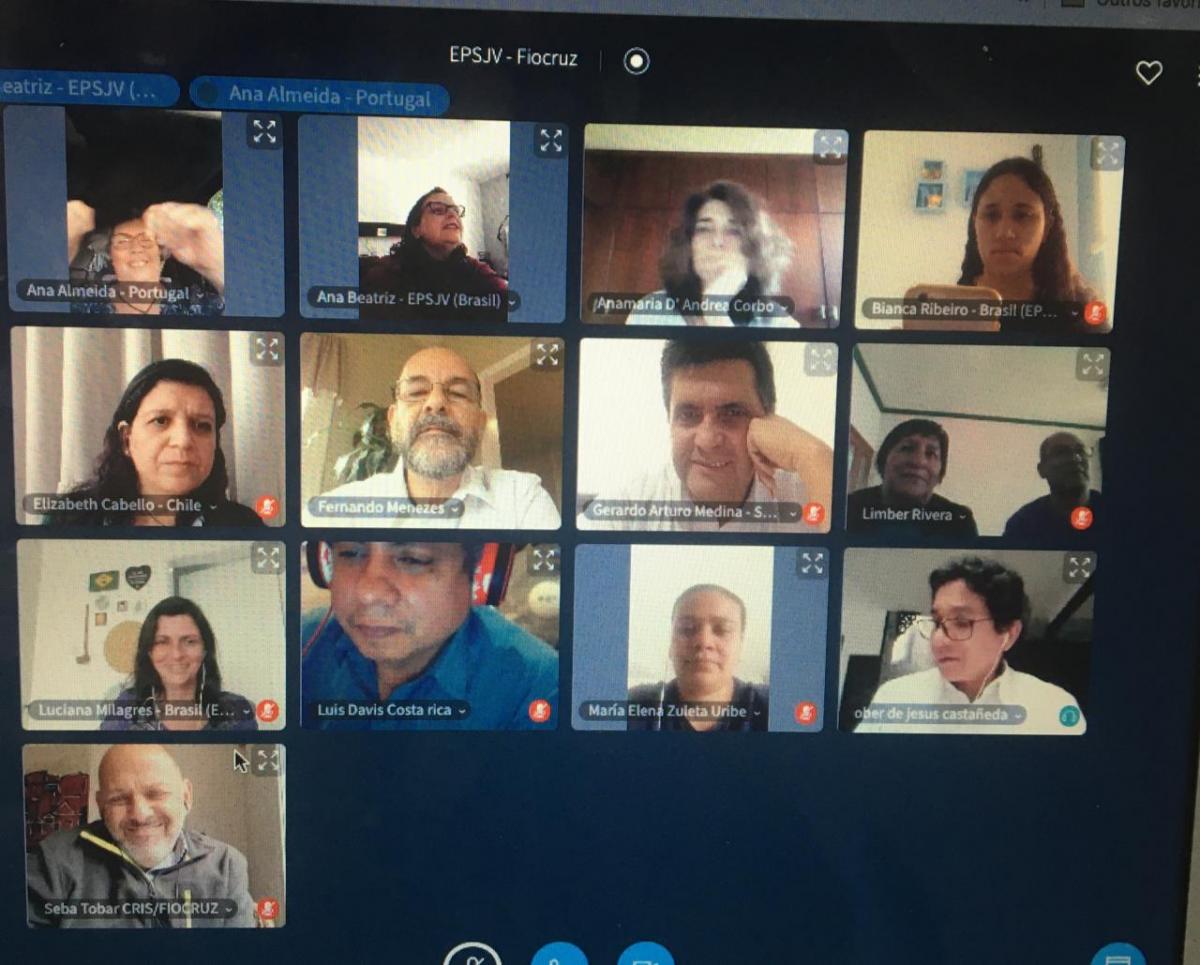 In May 2020, RETS held its first virtual meeting with Latin American member countries. The meeting was attended by approximately 45 people among representatives of the member institutions and partner institutions such as the Network of Schools and Training Centers for Public Health in Latin America (RESP), the Regional Network for Interprofessional Education of the Americas (REIP), and the Higher School of Health Technology of Lisbon (ESTeSL-Portugal).
In May 2020, RETS held its first virtual meeting with Latin American member countries. The meeting was attended by approximately 45 people among representatives of the member institutions and partner institutions such as the Network of Schools and Training Centers for Public Health in Latin America (RESP), the Regional Network for Interprofessional Education of the Americas (REIP), and the Higher School of Health Technology of Lisbon (ESTeSL-Portugal).
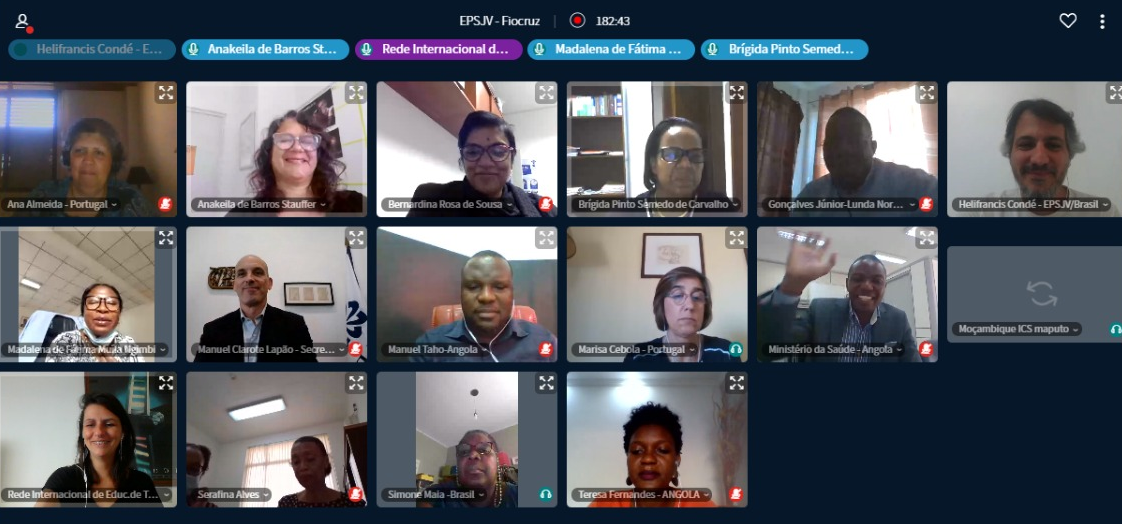
In July 2020, the first Virtual Meeting of RETS-CPLP reunited representatives from six of the nine countries that make up the Community. More than 30 representatives from Angola, Brazil, Cape Verde, Mozambique, Portugal, and São Tomé and Príncipe were present.
In August 2020, RETS held, in partnership with the Servicio Nacional de Aprendizaje de Colombia (SENA), the I Latin American Colloquium on Interprofessional Education (IEP) and the training of Health Technicians. Colombian Ministry of Health, the Pan-American Health Organization (PAHO/WHO), and the Andean Area University Foundation (Areandina) supported the event. Among the objectives of the Colloquium were the need to socialize initiatives in the Latin American and Caribbean region on IEP, share knowledge and experiences of incorporating health workers in IEP, promote the implementation of national plans for IEP, and make visible and strengthen technical education in the development of the implementation of national plans for IEP.
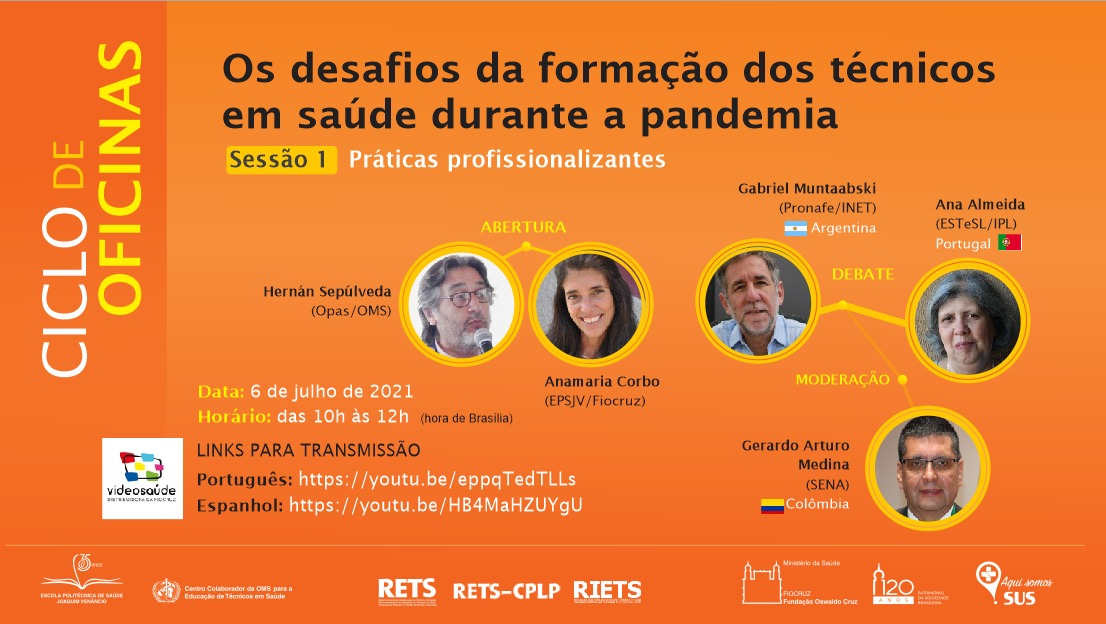
"The lack of information and the great challenge generated by Covid-19 ended up expanding the action of RETS in virtual modalities. That also brought about a progressive institutionalization that helps create new opportunities to address common problems and articulate responses for the adoption of collective measures, in addition to contributing to the strengthening of institutional capacities to face the countries' health problems.", said Sebastián Tobar, advisor of the Center for International Relations in Health (CRIS) at Fiocruz.
He believes that working in RETS is a significant option for technical cooperation, exchange of knowledge and experience, training, capacity building, and technology transfer under conditions of greater equality of power and resources, as well as mutual learning and coordination of policies and development strategies among partner countries. "Peer-to-peer learning as occurs within the RETS framework, and structuring cooperation represents a powerful and flexible approach for strengthening national capacities and engaging all participants for the sake of public health as a whole and, specifically, at this time, in addressing the Covid-19 pandemic.", he adds.

